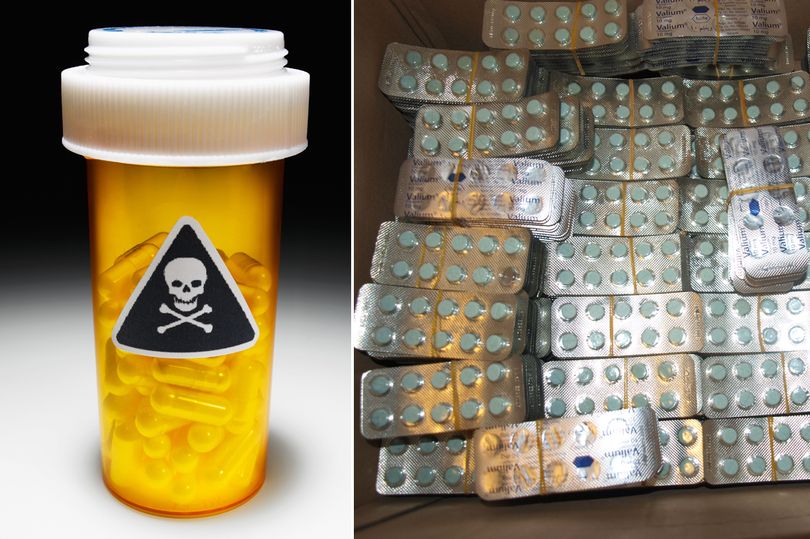The idea of consuming rat poison may make you feel nauseous, but worryingly, it’s an unknowing reality for many people every single day.
Speaking to Mirror Online, David Shore, Director of Global Security at Pfizer , has warned of the dangers of counterfeit drugs – fake medicines that are being sold worldwide.
The counterfeit drugs imitate those made by pharmaceutical companies, including Pfizer – and many look scarily realistic.
Mr Shore said: “They make them look like a real Pfizer product, so by looking at them you could think they were real. It’s not just the product itself – the packaging can also look extremely convincing.”

Historically, Viagra was the main drug known to be faked, but Mr Shore explained that counterfeit medicines from a range of therapeutic areas – including cancer drugs and vaccines – are now being sold.
Pfizer alone has 89 drugs known to be counterfeited.
But Mr Shore added: “We only know what the authorities tell us – we don’t know how much is in circulation as it’s not declared.
“It’s criminals trying to make money, but it’s the patients who suffer.”
Worryingly, the counterfeit drugs often contain a range of toxic chemicals, and either too much, too little, or even none of the active ingredients.
Mr Shore said: “We’ve found road paint, rat poison, ink, heavy metals and even arsenic. Some of these drugs are potentially lethal.”

The fake drugs are mostly sold online, where people turn for both ease, and to save embarrassment when buying products like Viagra.
But Mr Shore warned that they’re not just found on the web.
He said: “We’ve seen counterfeit versions of 62 of our medicines in pharmacies around the world.”
These medicines are also more likely to be for serious conditions, including heart disease and cancer , he explained.
“If you had a medicine you needed every day to survive, you probably wouldn’t want to buy it over the internet, and instead would buy that from a pharmacy,” he said.
“So for more life saving medicines, criminals target pharmacies.”
When asked about numbers, Mr Shore explained that there aren’t many statistics available on counterfeit drugs.
He said: “Let’s say a patient needs to take medication to keep their heart working properly.
“They manage to get counterfeit medicine online, and there’s nothing in it. It’s just a placebo.
“They then take it, thinking it’s their medicine, and have a heart attack and die.
“In the post mortem they’ll find that the patient died of a heart attack and the case would be closed.
“They wouldn’t even check their blood to see if the drug is in their system. So we don’t know how many deaths have been caused by counterfeit drugs.”
Finding the criminals behind counterfeit drugs, and ultimately stopping them, is no mean feat.
Mr Shore said: “We proactively and reactively target the criminals involved in this.
“We try to get to the top level producers, but will target people selling it at a low level, and then work the way up the stream.”
But while pharmaceutical companies can help to pinpoint the criminals, they don’t have the power to prosecute them.

Mr Shore said: “We have to hand the case into local law enforcement and ask them to take on the criminal prosecution. Then we’ll support law enforcement to put forward a case.”
While counterfeit drugs are potentially lethal, Mr Shore doesn’t believe that enough is being done to prevent them from circulating.
He said: “The problem is, lots of people are uninterested. They’re not taking preventative measures, just dealing with it when it happens.
“It’s not getting the level of respect, or resources, it deserves.
“In the UK, there are 1,000 customs officers focused on counterfeit tobacco. But there’s not a single officer working on counterfeit medicines.
“We’re doing it well with the resources we have, but we need the public to be more aware of the risks.
“It needs to be a multi-pronged approach – stricter laws, public awareness, better law enforcement help to stop people selling it.”












